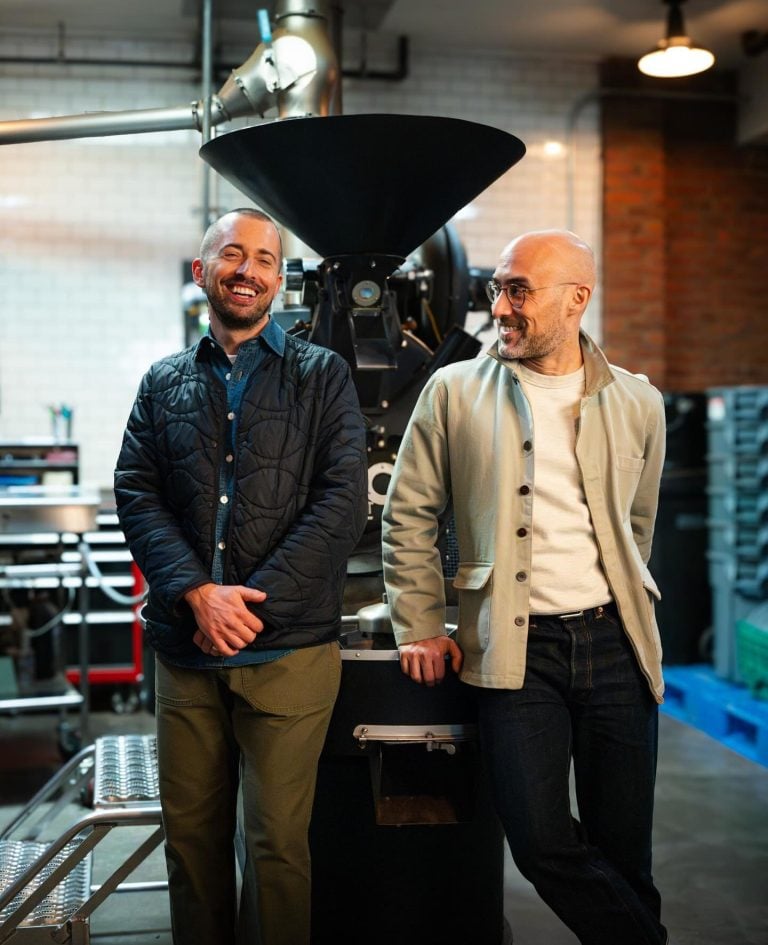Curious about how much a wine sommelier can earn in 2024?
According to recent data, the average base salary for a sommelier in the United States is $62,000 per year. But experienced sommeliers in high-end establishments can earn up to $120,000 annually. Interested in exploring the profession further? Learn about what a sommelier does, their importance in the dining experience, and steps to pursue a career in this esteemed field.
Salaries vary based on location, experience, and level of certification. In this blog post, we’ll dive into the factors that affect master sommelier salary and earnings and explore the highest-paying sommelier jobs in the industry.
So, if you’re passionate about wine and considering a career as a sommelier, read on to discover how much you can earn in 2024.

Save 80% of delivery management time
We handle everything:
- Dedicated operations manager
- Real-time tracking dashboard
- Automated customer notifications
- Urgent issue resolution
Average Sommelier Salary in 2024
The average base salary for a sommelier in the United States is $62,000 per year
Experienced sommeliers in high-end establishments can earn up to $120,000 annually
Salaries vary based on job title, location, experience, and level of certification
In 2024, the average base salary for a sommelier in the United States is $62,000 per year. However, experienced sommeliers working in high-end restaurants and hotels can earn significantly more, with some making up to $120,000 annually.
Salaries by Experience Level
Entry-level sommeliers: $45,000 – $60,000
Mid-career sommeliers: $60,000 – $80,000
Senior-level sommeliers: $80,000 – $110,000
Sommelier salaries vary greatly depending on experience level. Entry-level sommeliers, typically those with less than 3 years of experience, can expect to earn between $45,000 and $60,000 per year. Mid-career sommeliers with 3-7 years of experience usually earn higher salaries, between $60,000 and $80,000 annually. Senior-level sommeliers, who have more than 7 years of experience and often hold advanced certifications, can command salaries ranging from $80,000 to $110,000 per year. If you’re curious about the steps involved in entering this lucrative profession, explore the process of becoming a sommelier and elevate your love for wine to a rewarding career.
As you consider your future career as a sommelier, remember that the delivery logistics of exquisite wines can also play a significant role in your success. Understanding services like same-day delivery can enhance your customer experience, making it easier to recommend and procure rare selections for your clientele. Interested in how efficient logistics can support your career? Check out this Washington DC same-day delivery service for more insights.
Highest-Earning Sommeliers
The highest-earning sommeliers are often those who have achieved the prestigious Master Sommelier certification. These individuals can earn upwards of $150,000 per year, with some other sommeliers even making close to $200,000 in top restaurants and resorts. These sommeliers are highly sought after for their extensive knowledge, exceptional palate, and ability to curate world-class wine programs.
Salaries by Location
Major metropolitan areas offer higher salaries due to increased demand and cost of living
Top-paying cities include New York, San Francisco, Las Vegas, and Miami
Rural areas and smaller cities typically have lower sommelier salaries
Location plays a significant role in determining sommelier salaries. Major metropolitan areas, such as New York, San Francisco, Las Vegas, and Miami, tend to offer higher salaries due to the increased demand for wine experts in high-end restaurants and the higher cost of living. Sommeliers in these cities can expect to earn 10-20% more than the national average salary.
In contrast, sommeliers working in rural areas and smaller cities may earn less than the national average. These locations often have a lower cost of living and fewer high-end establishments, resulting in lower average salaries even for wine professionals.
Factors Affecting Sommelier Salaries
Several other factors also can impact a sommelier’s salary, including:
Restaurant or hotel type: Fine dining establishments and luxury hotels typically pay higher salaries than casual restaurants or bars
Wine program size and complexity: Sommeliers managing larger, more diverse wine programs often earn much more money than those working with smaller selections
Additional responsibilities: Sommeliers who take on management roles or contribute to menu development may receive higher compensation
Tips and bonuses: In some establishments, sommeliers may earn a portion of their income through tips or performance-based bonuses
As the wine industry continues to evolve and appreciate the value of skilled and certified sommeliers, salaries are expected to rise in the coming years. Aspiring sommeliers can increase their earning potential by gaining experience, pursuing advanced certifications, and seeking opportunities in high-end establishments and major metropolitan areas. For aspiring sommeliers, understanding the logistics of wine delivery can be equally important. Efficient delivery services can greatly enhance your ability to provide customers with the wines they desire in a timely manner, further elevating their dining experience. To explore effective solutions, check out this insightful Philadelphia courier service that can support your goals in the wine industry.
Factors Affecting Sommelier Earnings
Certifications and Education
A sommelier’s level of education and certification greatly influences their earning potential. The most recognized certifications in the wine industry are provided by the Court of Master Sommeliers (CMS) and the Wine & Spirit Education Trust (WSET). These organizations offer various levels of certification, each requiring a significant investment of time and money. Additionally, the logistics of wine delivery are crucial to a sommelier’s success. Efficient courier services can expedite the procurement of rare wines and enhance customer satisfaction. For insights on how reliable logistics can elevate your sommelier career, consider exploring this improved courier service in Miami for managing deliveries expertly.
Certified Sommelier Salary:
The median wine sommelier salary across all four levels of certification is $62,000 annually.
Court of Master Sommeliers (CMS)
The CMS offers four levels of certification:
Introductory Sommelier
Certified Sommelier
Advanced Sommelier
Master Sommelier
Achieving the Master Sommelier title is a rare feat, with only 284 individuals holding this prestigious certification worldwide as of 2024. The exam consists of three parts: theory, service, and blind tasting. Candidates must demonstrate an extensive knowledge of wine regions, grape varieties, and wine laws, as well as exceptional tasting skills and impeccable service. Embarking on your journey to becoming a Master Sommelier? Uncover vital strategies for acing the Master Sommelier Examination and elevate your professional standing in the wine industry.
Wine & Spirit Education Trust (WSET)
The WSET provides four levels of certification:
Level 1 Award in Wines
Level 2 Award in Wines
Level 3 Award in Wines
Level 4 Diploma in Wines
The Level 4 Diploma is a highly respected qualification that requires a minimum of 500 hours of study and passing a series of rigorous exams. Holders of this diploma demonstrate a deep understanding of wine production, regions, and styles, as well as the ability to critically evaluate wines.
Sommeliers who invest in higher levels of certification can command higher salaries and are more likely to secure positions at prestigious establishments. Continuing education and staying current with industry trends is essential for career advancement and increased earning potential.
Years of Experience
Experience in the wine industry is another key factor affecting a sommelier’s earnings. Entry-level positions, such as a sommelier assistant or junior sommelier, typically offer lower salaries as individuals gain hands-on experience and develop their skills. As sommeliers progress in their careers and take on more responsibility, their earning potential increases.
Senior sommeliers and beverage directors, who often have a decade or more of experience, can earn significantly higher salaries. These roles involve managing wine programs, training staff, and working closely with chefs to create exceptional food and wine pairings. Experienced sommeliers may also have the opportunity to consult for multiple restaurants or wine brands, further increasing their income.
Establishment Type and Reputation
The type of establishment a sommelier works for plays a significant role in their earnings. Fine dining restaurants, luxury resorts, and high-end wine bars typically offer the highest salaries for sommeliers. These establishments often have extensive wine lists and cater to a discerning clientele willing to pay premium prices for rare and exclusive wines.
Chain restaurants and casual dining establishments, on the other hand, generally pay lower wages to sommeliers. These venues may have more limited wine selections and focus on offering affordable, approachable options to a broader customer base.
A sommelier’s reputation and network within the wine community can also impact their earning potential. Sommeliers who have built a strong personal brand, have a proven track record of creating successful wine programs or have won prestigious awards may be in high demand and can command higher salaries.
Geographic Location and Cost of Living
Geographic location and the cost of living in a given area can also affect a sommelier’s earnings. In major cities like New York, San Francisco, and Los Angeles, where the cost of living is high, sommeliers may earn higher salaries to compensate for the increased expenses. However, it’s essential to consider that these higher salaries may not necessarily translate to a higher standard of living due to the elevated costs of housing, transportation, and other necessities.
Sommeliers working in smaller cities or rural areas may earn lower salaries, but the cost of living in these locations is often more affordable. This can result in a better quality of life, even with a lower income.
For example, according to data from the Bureau of Labor Statistics, the median annual salary for sommeliers in New York City is $73,640, while in San Francisco, it is $81,440. In contrast, sommeliers in smaller cities like Des Moines, Iowa, or Greenville, South Carolina, may earn lower salaries, but the cost of living in these areas is significantly lower.
Sommelier Salary Range: National Average Salary
The salary hourly wage range for sommeliers varies widely, from $40,000 to over $150,000 per year.
Factors such important factors such as experience, location, and employer reputation impact earning potential.
Additional responsibilities beyond wine service can lead to higher salaries.
The salary range for sommeliers is broad, reflecting the diversity of the industry and the various factors that influence earning potential. Entry-level positions may start at around $40,000 per year, while top earners in prestigious establishments or with extensive experience can exceed $150,000 annually.
Factors Contributing to the Salary Range
Several key factors contribute to the wide salary range for sommeliers:
Supply and Demand
The supply and demand of qualified sommeliers in a given market can significantly impact salaries. In areas with a high concentration of fine dining restaurants and a limited pool of experienced sommeliers, employers may offer higher salaries to attract and retain talent. Conversely, in markets with a lower demand or an oversupply of sommeliers, salaries may be more modest.
Prestige and Reputation of the Establishment
The prestige and reputation of the establishment where a sommelier works can also influence their salary. High-end restaurants, luxury hotels, and exclusive private clubs often offer higher salaries to attract and retain top talent. These establishments typically have extensive wine collections and cater to discerning clientele, requiring sommeliers with exceptional knowledge and service skills. For example, the sommeliers at the Michelin-starred restaurant, Alinea, in Chicago, can earn up to $120,000 per year.
Additional Responsibilities
Sommeliers who take on additional responsibilities beyond wine service can command higher salaries. These responsibilities may include managing the restaurant’s wine inventory, training staff on wine knowledge and service, and collaborating with the culinary team to create wine pairings for menu items. Sommeliers who demonstrate strong leadership skills and the ability to manage these additional tasks effectively are often rewarded with higher salaries. For instance, the sommelier at the renowned Eleven Madison Park in New York City, who oversees the wine program and staff training, can earn up to $180,000 per year.
In some cases, sommeliers may also be involved in purchasing decisions, negotiating with wine suppliers, and even curating the establishment’s wine list. These additional responsibilities require a deep understanding of the wine industry, market trends, and business acumen, further justifying higher salaries for those who excel in these areas.
Highest Paying Sommelier Jobs
Head sommeliers at Michelin-starred restaurants can earn $150,000 or more
Wine directors at luxury resorts and hotels command high salaries and comprehensive benefits packages
Private wine consultants for high-net-worth individuals and collectors can charge premium rates
While the average sommelier’s salary ranges from $40,000 to $80,000 per year, some high-level positions offer significantly higher compensation. Head sommeliers at prestigious restaurants, wine directors at luxury establishments, and private consultants catering to affluent clients can earn well into the six-figure range.
Wine Director Salary:
Wine directors in the United States typically earn $70,048 per year.
Head Sommeliers at Top Restaurants
Head sommeliers at Michelin-starred restaurants and other high-end dining establishments often command the highest salaries in the industry. These positions require extensive experience, exceptional wine knowledge, and a proven track record of delivering outstanding service.
In addition to base salaries that can exceed $150,000, head sommeliers may receive bonuses, profit sharing, and other incentives. The most sought-after positions are highly competitive, with candidates often possessing advanced certifications such as the Master Sommelier or Master of Wine designation.
Wine Directors at Luxury Hotels and Resorts
Wine directors at five-star hotels, luxury resorts, and exclusive private clubs also rank among the highest-paid sommelier positions. These roles involve overseeing extensive wine programs, managing teams of sommeliers, and catering to the discerning tastes of high-net-worth clientele.
Salaries for wine directors can range from $100,000 to $200,000 or more, depending on the establishment’s prestige and the scope of the wine program. Comprehensive benefits packages, including health insurance, retirement plans, and generous vacation allowances, are common at this level.
Case Study: The Breakers Palm Beach
The Breakers, a legendary luxury resort in Palm Beach, Florida, employs a team of sommeliers led by a wine director. With a cellar boasting over 50,000 bottles and 2,000 unique selections, the resort’s wine program is among the most extensive in the United States.
The wine director at The Breakers oversees a multimillion-dollar wine inventory, collaborates with celebrity chefs, and hosts exclusive wine dinners and tastings for guests. While the exact salary is not public, it is likely in the upper range for the industry.
Private Wine Consultants
Private wine consultants who cater to high-net-worth individuals, collectors, and corporations can also command premium rates. These consultants offer personalized services such as cellar management, acquisition advice, and curated tastings.
Fees for private wine consultants vary widely depending on the scope of the project and the consultant’s reputation. Some may charge hourly rates of $100 or more, while others receive retainers or commissions based on the value of the wine collections they manage.
Successful private wine consultants often have a full website and a strong network of industry contacts, enabling them to source rare and sought-after bottles for their clients. They may also have a media presence, authoring books or articles on wine and appearing as expert commentators.
Wine Consultant Salary:
The typical salary for a wine consultant is $53,422.
Paths to High-Paying Sommelier Positions
Aspiring sommeliers can increase their chances of landing high-paying positions by:
1. Building a strong reputation through exceptional service and wine knowledge
2. Networking within the industry to access exclusive job opportunities
3. Continuously expanding one’s palate and staying current with wine trends
4. Pursuing advanced certifications such as the Master Sommelier or Master of Wine
5. Gaining experience in diverse sectors of the wine industry, such as distribution, sales, and education
The Importance of Mentorship
Mentorship plays a crucial role in the development of successful sommeliers. Many of the industry’s top earners credit their success to the guidance and support of experienced mentors.
Aspiring sommeliers should seek out mentorship opportunities, whether through formal programs like the Court of Master Sommeliers or informal relationships with respected professionals. A strong mentor can provide invaluable advice, introduce you to key contacts, and help you navigate the challenges of the industry.
While the path to a high-paying sommelier position is challenging, it is achievable for those with passion, dedication, and a willingness to continuously learn and grow. By focusing on excellence, building a strong network, and seizing opportunities as they arise, sommeliers can position themselves for success in this dynamic and rewarding field.
Is Becoming a Sommelier Worth It?
Becoming a sommelier can be a fulfilling career choice for those who are passionate about wine and the hospitality industry. The role offers the opportunity to work with world-class wines, engage with a community of fellow enthusiasts, and potentially earn a high salary. However, the path to success is not without its challenges.
Pros of Being a Sommelier
Working as a sommelier provides the chance to immerse oneself in the fascinating world of wine. Sommeliers have the privilege of tasting and recommending some of the finest wines available, often paired with exceptional cuisine. This exposure to a wide variety of wines allows for continuous learning and refinement of one’s palate.
For those who excel in the field, the financial rewards can be significant. Top sommeliers in high-end restaurants can earn six-figure salaries, with some even venturing into consulting or starting their own businesses. According to the Court of Master Sommeliers, the median salary for a Master Sommelier in the United States is $150,000 per year.
Moreover, being a sommelier offers the opportunity to be part of a passionate and knowledgeable community. Sommeliers often form close relationships with winemakers, importers, and fellow wine professionals, creating a network of support and camaraderie.
Cons of Being a Sommelier
While the rewards of being a sommelier can be substantial, the journey to reach that level of success is not easy. Becoming a certified sommelier requires a significant investment of time and money. The Court of Master Sommeliers offers four levels of certification, each with its own set of exams and requirements. The process can take years to complete and can cost thousands of dollars in course fees, study materials, and travel expenses.
In addition to the certification process, sommeliers must be prepared to work long and often irregular hours. Restaurants are busiest during evenings and weekends, which means sommeliers must be available during those times. The work environment can also be high-pressure, with sommeliers expected to provide impeccable service and maintain an extensive knowledge of the restaurant’s wine list.
As noted by sommelier and wine writer, Rachel Signer, “The job can be incredibly demanding, both physically and mentally. It requires a level of stamina and resilience that not everyone has”.
Despite these challenges, many sommeliers find the work to be rewarding and fulfilling. As Master Sommelier Brahm Callahan notes, “Being a sommelier is not just a job, it’s a lifestyle. It requires passion, dedication, and a willingness to constantly learn and grow.”
Is it Worth Becoming a Sommelier?
Ultimately, the decision to pursue a career as a sommelier depends on one’s individual goals and priorities. For those who are passionate about wine and are willing to put in the time and effort required to succeed, the rewards can be significant. However, it is essential to carefully consider the challenges and sacrifices that come with the job.
In terms of demand, the job outlook for sommeliers is positive. The Bureau of Labor Statistics projects that employment of food and beverage serving and related workers, which includes sommeliers, will grow 17% from 2020 to 2030, faster than the average for all occupations. However, competition for high-end positions can be fierce, and success is not guaranteed.
For those who are willing to put in the work and are passionate about wine and hospitality, becoming a sommelier can be a rewarding and lucrative career choice. As with any career, it is essential to carefully weigh the pros and cons and to have a realistic understanding of the challenges and opportunities involved.
Why Do Sommeliers Make So Much?
The Value of a Skilled Sommelier
A skilled sommelier brings immense value to a restaurant or hotel. They possess a deep understanding of wine regions, grape varieties, and production methods, allowing them to recommend wines that perfectly complement each dish on the menu. This expertise enhances the overall dining experience for guests, leading to increased customer satisfaction and loyalty.
Moreover, sommeliers are adept at managing wine inventory and maximizing revenue for the establishment. They carefully curate wine lists, ensuring a balance between popular favorites and unique, high-value bottles that appeal to discerning customers. By effectively managing the wine program, sommeliers help restaurants optimize their wine sales and boost profitability.
Wine Sales Manager Salary:
Wine sales managers make an annual salary of $77,680.
The Importance of Wine Pairing
One of the key responsibilities of a sommelier is to create harmonious pairings between food and wine. They use their knowledge of flavor profiles, acidity, and tannins to select wines that complement and enhance the flavors of each dish. This skill is particularly valuable in fine dining establishments, where customers expect a seamless and elevated culinary experience.
Sommeliers also educate guests about the wines they recommend, providing insights into the winemaking process, the history of the wine region, and the unique characteristics of each bottle. This educational aspect of their role adds depth and richness to the dining experience, making it more memorable and enjoyable for guests.
Extensive Training and Certification
Becoming a highly skilled sommelier requires years of dedicated study and training. Many sommeliers pursue professional certifications, such as those offered by the Court of Master Sommeliers or the Wine & Spirit Education Trust (WSET). These rigorous programs cover topics such as wine regions, grape varieties, tasting techniques, and food pairing.
Achieving high-level certifications, such as the Master Sommelier title, is an incredibly challenging feat. Candidates must demonstrate mastery of wine theory, blind-tasting skills, and service knowledge. As of 2021, there were only 269 Master Sommeliers worldwide, highlighting the exclusivity and prestige of this designation.
Continuous Learning and Development
The world of wine is constantly evolving, with new regions, producers, and trends emerging regularly. To stay at the top of their game, sommeliers must commit to continuous learning and professional development. They attend wine tastings, industry events, and educational seminars to keep their knowledge up-to-date and expand their expertise.
This ongoing investment in their craft allows sommeliers to provide cutting-edge recommendations and insights to their guests. By staying ahead of the curve, they maintain their value and relevance in a highly competitive industry.
Demand for Sommelier Services
As the appreciation for fine wine continues to grow, so does the demand for skilled sommeliers. High-end restaurants, luxury hotels, wine shops, and private collectors all seek the expertise of sommeliers to elevate their wine programs and provide exceptional experiences for their clients.
In addition to traditional roles in restaurants, sommeliers are also finding opportunities in wine, consulting services, education, and event planning. Their specialized knowledge is valuable in a wide range of settings, from corporate events to private dinners and wine tastings.
The Scarcity of Top Talent
Given the extensive training and experience required to become a top-tier sommelier, there is a relative scarcity of professionals at the highest levels of the field. This scarcity, combined with the growing demand for their services, contributes to the premium salaries commanded by skilled sommeliers.
Restaurants and hotels are willing to invest in top talent to differentiate themselves in a crowded market and attract discerning customers who appreciate a world-class wine program. As a result, sommeliers who have honed their craft and built a strong reputation can command impressive salaries and enjoy a range of career opportunities.
Your Sommelier Salary: A Toast to Your Future
Sommelier salaries in 2024 range from $45,000 to over $150,000, depending on experience, location, and establishment. Certifications, reputation, and industry connections play a significant role in earning potential.
Becoming a sommelier can be a rewarding career path for wine enthusiasts, offering opportunities to work with world-class wines and cuisines while engaging with a passionate community. However, success requires dedication, continuous learning, and a willingness to work in a demanding environment.
Are you ready to embark on a journey to become a master of wine? Start by investing in your education and gaining experience in the industry. Build your network, refine your palate, and never stop learning.
What steps will you take today to begin your path to becoming a top-earning sommelier?




























